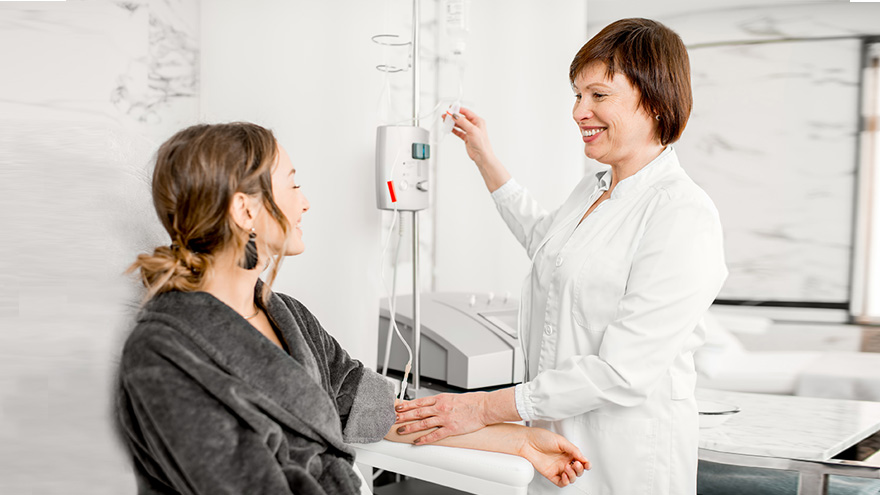
Overview
Learn to safely and effectively operate dialysis machines, work with medical records, and provide care for patients with kidney disorders.
What you will learn
Upon completion of the Renal Dialysis program students will be able to:
- Prepare, maintain, and troubleshoot dialysis equipment and courses for treatment
- Work effectively, ethically, and professionally both individually and as part of an inter-professional healthcare team
- Maintain a safe environment by following infection control protocols, occupational health and safety guidelines, and established standards of care
- Perform patient care duties within assigned roles and responsibilities
- Document observations and care provided according to clinical and agency standards
What to expect
This is a full-time face-to-face program. Days and hours may vary. The clinical placement may include some early mornings and evenings.
The program consists of two courses: theory and clinical. The theory course is delivered through classroom instruction, group discussions, case-studies, and simulations. Students apply theoretical knowledge in the clinical practicum, which takes place in hospital or community dialysis clinics. The clinical course is delivered through clinical instruction and supervision, observation and assessment, daily post-clinical conferences and reflective journaling.
Admission requirements
- Grade 12 graduation or equivalent
- Knowledge of English demonstrated by one of the following:
- English 12 with a minimum 'C+' grade or equivalent or
- English Language Proficiency at a minimum English 12 'C+' level
- Biology 12 with a C+, or VCC BIOL 0983/BIOL 0993 with a C+, or equivalent
- OACP 1108 Medical Terminology 1 or equivalent, taken within the last five years
- MSKL 1104 Interpersonal Communication Skills - Health or equivalent
- Criminal Record Check (CRC): Students in this program are required to complete a CRC. The CRC must be completed according to VCC's Criminal Record Check instructions. Students whose CRC results indicate they pose a risk to vulnerable populations will not be able to complete the requirements of the program (e.g. practicums) or graduate.
Upon acceptance:
- Submission of a negative TB skin test. If the skin test is positive, proof of a negative TB chest x-ray is required.
- A VCC Immunization Record must be completed. Immunizations in the following are strongly recommended and in some case may be required for practicum placements:
- Diphtheria/Tetanus
- Polio
- Measles, Mumps, and Rubella
- Hepatitis B
- Influenza (on an annual basis)
- Chicken Pox
- COVID-19
*NOTE: Clinical facilities may decline individual students for their placement if a student is unable to provide proof of immunizations or satisfactory serum titers and TB screening.
Recommended Characteristics
- Good command of oral and written English.
- Ability to adjust to work in a hospital setting. Previous health care experience is an asset.
- Ability to operate related equipment.
- Ability to take initiative, handle responsibility and maintain confidentiality.
- Dependable, ethical and respectful.
- Ability to work under close direction as a member of a health care team.
- Attention to detail, accuracy, patience, and ability to work well under pressure.
- Flexibility to adjust to early morning and evening practicum shifts, to a variety of clinical settings and locations within the Lower Mainland area.
- Physical ability to carry out the duties of a renal technician, including standing for long periods of time and performing repetitive movements.
Fees and other costs
| Fee description | Fee Amount | Notes |
|---|---|---|
| Application fee | $36 | |
| Tuition | $6,194 | |
| College initiative | $12 | |
| Graduation | $45 | |
| Total | $6,287 |
Need help with tuition?
Explore your options for scholarships, grants, bursaries, and loans.
* Fees are approximate and subject to change with the approval of VCC's Board of Governors. Students are required to pay any applicable fee increases. Application and assessment fees are non-refundable.
Any refunds are issued according to VCC's refund policy.
